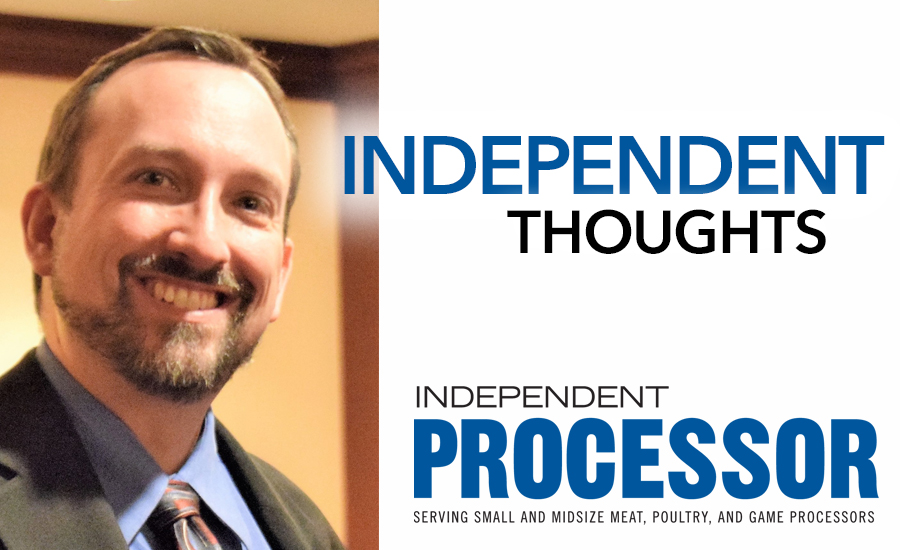Editor's Note | Sam Gazdziak
Coronavirus safety: decide for yourself

Up until now, the response to the Coronavirus has been largely uniform. While there were some variances between states, the country for the most part had locked down, and people were following social distancing guidelines.
However, as we get into the summer months, that uniformity has fractured. Some states have opened up completely, while others are mulling the extension of lockdown periods. While meat companies never really shut down except for emergency cases, there are hard choices that every leader is going to have to make in the coming weeks or months.
How long do we maintain social distancing in the plant? How long will we do daily temperature checks? When will the staff that have been working from home come back to the office? Will they ever come back to the office?
If you run a retail store, the questions multiply. When will we fully open the store to unregulated customer traffic? Will we maintain mask policies for our customers? Will we continue to offer curbside delivery options?
In short, when will things go back to normal?!?
The short and ugly answer is that things may not get back to normal — at least, not until there is a vaccine that is widely available. That is months, if not a year, away. Until then, every individual business will have to face the difficult questions of how it will maintain operations.
You will have to use your best judgment to decide how long these temporary policies last, or if the temporary policies become permanent policies. Do not let your employees or your customers push you into making decisions that you don’t want to make. There will be blowback either way. There is a #BoycottCostco movement because Costco is refusing to allow customers without masks enter their stores. The movement is small and hasn’t had much of an impact, but there are people out there who will refuse to enter into a store of they have to wear a mask or walk one way down a certain aisle. Likewise, there are people who have unleashed online vitriol on restaurants that have opened back up with full seating and no social distancing.
If you’re thinking that you’re damned if you do and you’re damned if you don’t, you’re probably right. If you decide to keep safety measures in place or remove them, you will be subject to criticism. Whatever you decide to do, remember that it is your choice to make. Do what makes the most sense to you that keeps people safe and your business successful. You can look at what businesses around you have done, and you can get feedback from your customers and employees. Like any critical business decision, the choice is yours to make. Prepare now on ways that your will address criticism so that you’re not caught off-guard later. IP
Looking for a reprint of this article?
From high-res PDFs to custom plaques, order your copy today!






